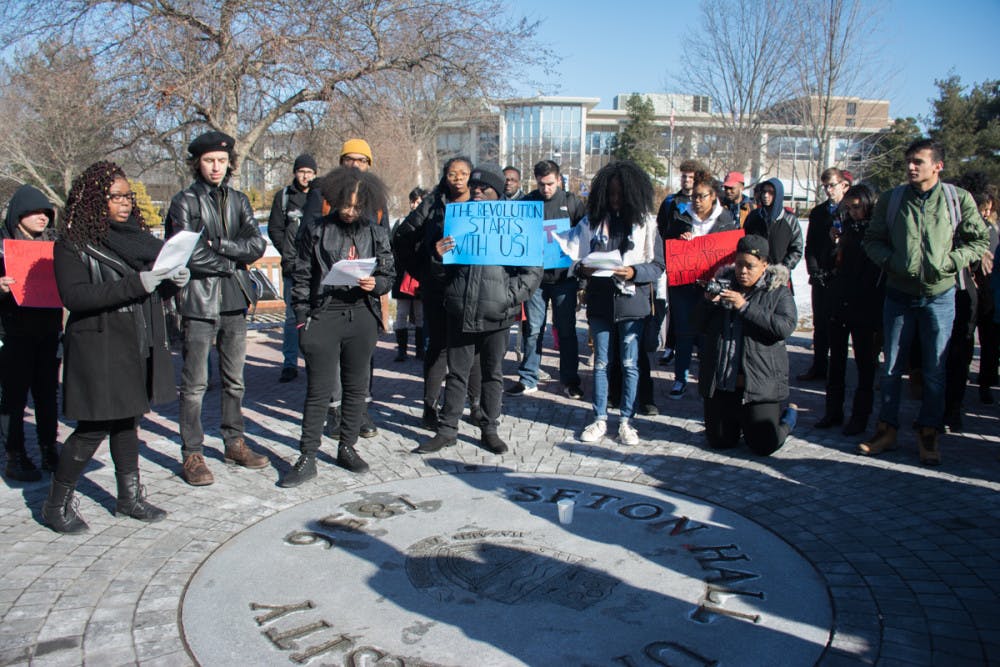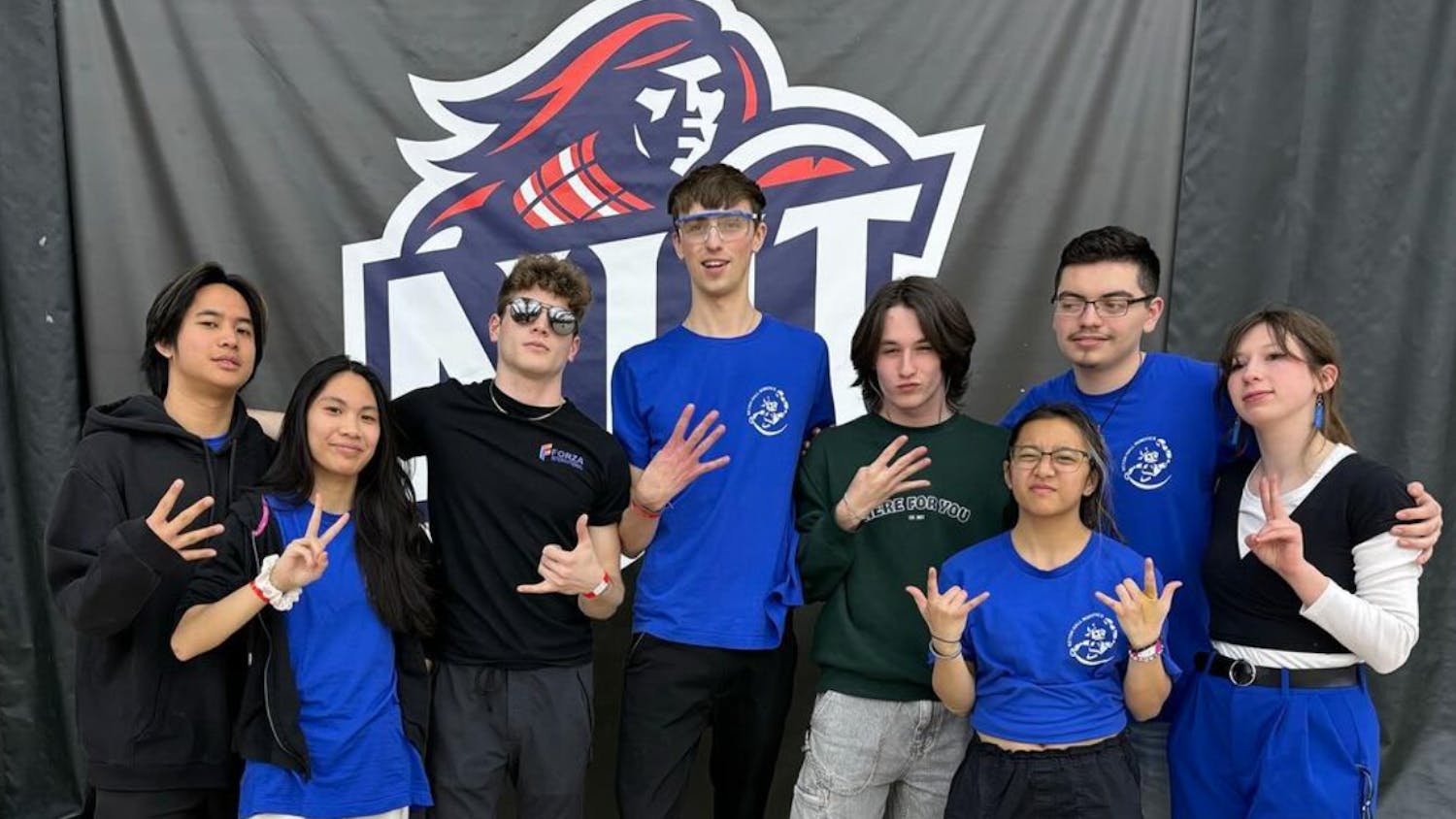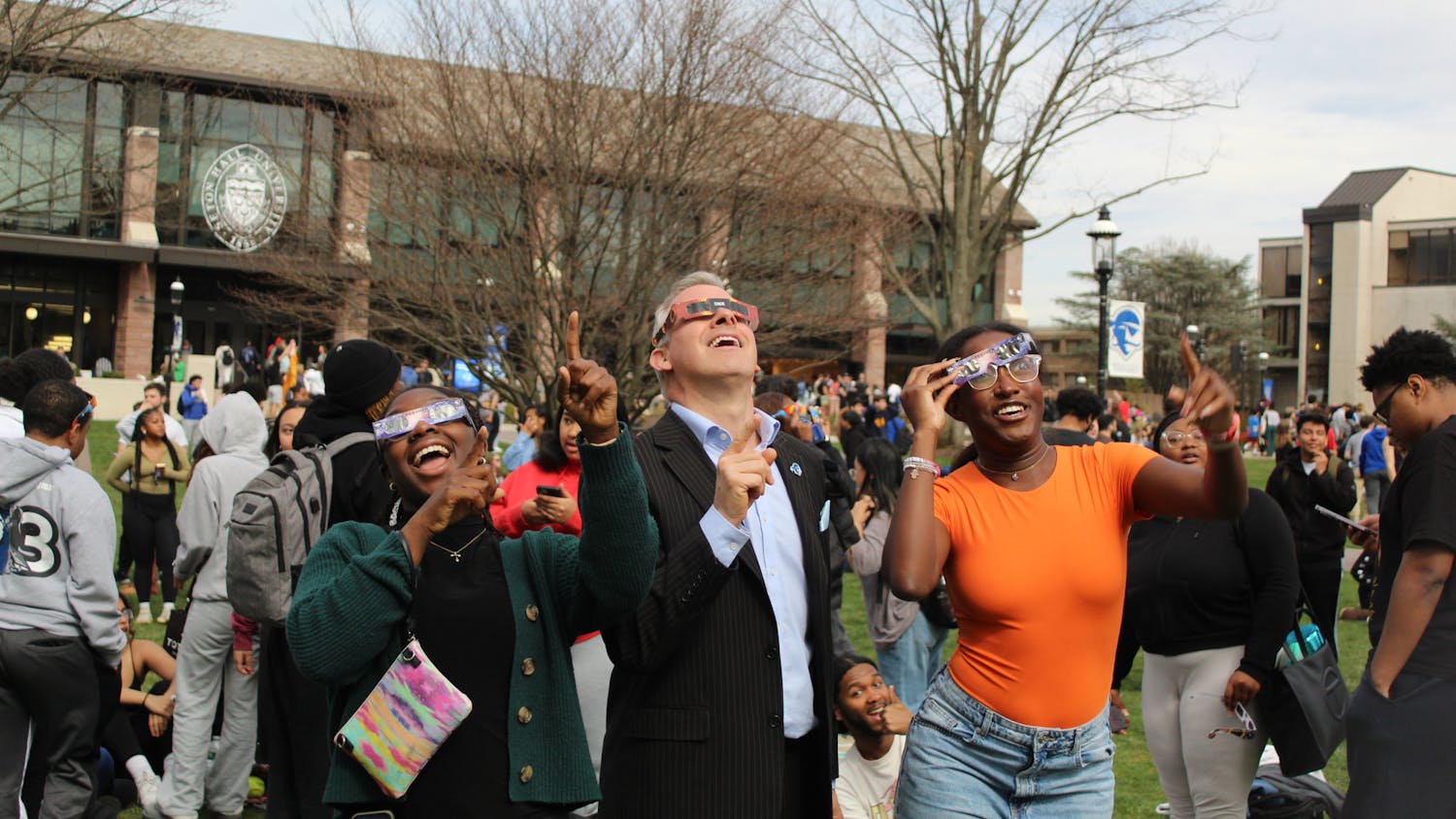Seton Hall is launching several new initiatives regarding inclusion “of every member of our [Seton Hall’s] community,” according to Dr. Karen Boroff, interim provost of Seton Hall.
Over the summer, an email was sent to the university community detailing these initiatives. These include work on the University Core and University Life classes, workshops for faculty and the entire university community, and the creation of an Inclusion Committee.
[caption id="attachment_23761" align="aligncenter" width="838"] File Photo[/caption]
The Setonian reported last academic year on both racist incidents that occurred on campus and a number of concerns raised by students regarding issues of diversity and inclusion.
Last December, the Lumina Foundation — an Indianapolis-based group which aims to expand student access to and success in education — asked for universities to submit proposals to improve equity and learning outcomes for students of color. While Seton Hall was not successful in securing this grant, a team of faculty and administrators still felt it necessary to launch these initiatives.
Boroff wrote in an email that some of the goals of these initiatives include “ensuring every community member’s understanding that our call to be servant leaders obliges us to treat every person with dignity and respect, increase the capabilities of the Seton Hall community to have meaningful dialogue about race, no matter the setting, and no matter the speaker and reducing hate, bias, and other incidents antithetical to Seton Hall’s mission.”
The Talent of Inclusion Project was recently announced before the beginning of the Fall 2018 semester. At New Student Convocation, each first-year student received five coins. If one of these students witnesses any member of the Seton Hall community “performing an act of inclusion or welcome, the student will write the date on the coin, initial it, and give it to that person,” according to an email sent to the university community by both Boroff and Dr. Tracy Gottlieb, vice president of Student Services.
Seton Hall is also launching a Campus Climate Survey and has been emailing it to members of the school community. This survey will be used to gage what work still needs to be done in terms of promoting inclusion at Seton Hall. Boroff said that in the spring, after these new initiatives have been in effect for some time, the survey will be sent out again so that the school will see how well the initiatives worked.
The newly named Black Caucus, which includes the 14 African Cultural Organizations on campus has already come up with a response to this survey. They are asking that the members of their respective organizations write #Concerned44 in the box left at the end of the survey for additional comments and to add any personal concerns they may have regarding inclusion on campus.
Taylor Newkirk, a junior psychology major and one of the two students on the Inclusion Committee, says that Seton Hall needs to be doing more to promote inclusion.
“While this is a good start for the school, that is all that it is,” said Newkirk, who is also president of the Black Student Union. “Workshops and small activities are not what it will take to move us forward as a university.”
When asked what Seton Hall should be doing in regards to inclusion, Newkirk offered a few suggestions.
“Classes should be provided for students to become educated about racial and diversity issues different groups of people face so that we can be truly educated about these matters and implement what we learned into our lives like we do with classes we take for our majors,” she said. “Organizations representing different social groups should be given more of a voice as well and that means faculty needs to do more than listen.
However, Newkirk contends that there are bigger problems at hand.
“As we see with the Talent of Inclusion Project, Seton Hall has its own ideas of implementing inclusion but might need a little more input from students as to what would actually progress our community,” she said. “College students are young adults and should not be expected to participate in an almost elementary activity that is supposed to teach us how to treat people equally.”
Aishwarya Rai, a junior economics and finance major, offered her thoughts on the initiatives as well.
“For the most part, I am happy with the university’s ability to create and mobilize a committee focused on general inclusion,” she said. “However, some efforts seem more capable of achieving their objective than others.
Rai said that she is referring to the Talent of Inclusion Project as well. She said that this initiative in particular seems “futile” to her and “to the objective of promoting natural inclusion.”
“My first reaction was that it turned the whole idea of creating an inclusive campus into a game that undermines college-aged students’ abilities to act progressively,” she said. “The additions to the core readings, however, seem to be worthwhile. Intellectual exposure is likely to set some grounds for understanding, acceptance, and inclusion.”
Rishi Shah, a junior finance and economics major and president of the Student Government Association (SGA), said that he thinks the initiatives are a step in the right direction when it comes to diversity and inclusion on Seton Hall’s campus. However, he says that there is always more work to be done.
“I believe having a CDO (Chief Diversity Officer) would benefit our University immensely,” he said. “Universities such as Villanova have implemented this role to better understand the diverse populations on campus and better recruit minority populations. In the short term, we need to have a unified conversation about the issues at hand. This should be done by having more students take part in the initiatives being created and by simply paying attention.
Shah also encouraged students to attend the events and programs created by these initiatives, and to also bring their friends. He also encouraged students to fill out the Campus Climate Survey to let the university know how they’re feeling about these new initiatives.
“In the long term, I believe that immersing all populations in the culture here at Seton Hall will bring forth better recruitment, and make students feel more connected with the University,” he said.
Isabel Soisson can be reached at isabel.soisson@student.shu.edu.
File Photo[/caption]
The Setonian reported last academic year on both racist incidents that occurred on campus and a number of concerns raised by students regarding issues of diversity and inclusion.
Last December, the Lumina Foundation — an Indianapolis-based group which aims to expand student access to and success in education — asked for universities to submit proposals to improve equity and learning outcomes for students of color. While Seton Hall was not successful in securing this grant, a team of faculty and administrators still felt it necessary to launch these initiatives.
Boroff wrote in an email that some of the goals of these initiatives include “ensuring every community member’s understanding that our call to be servant leaders obliges us to treat every person with dignity and respect, increase the capabilities of the Seton Hall community to have meaningful dialogue about race, no matter the setting, and no matter the speaker and reducing hate, bias, and other incidents antithetical to Seton Hall’s mission.”
The Talent of Inclusion Project was recently announced before the beginning of the Fall 2018 semester. At New Student Convocation, each first-year student received five coins. If one of these students witnesses any member of the Seton Hall community “performing an act of inclusion or welcome, the student will write the date on the coin, initial it, and give it to that person,” according to an email sent to the university community by both Boroff and Dr. Tracy Gottlieb, vice president of Student Services.
Seton Hall is also launching a Campus Climate Survey and has been emailing it to members of the school community. This survey will be used to gage what work still needs to be done in terms of promoting inclusion at Seton Hall. Boroff said that in the spring, after these new initiatives have been in effect for some time, the survey will be sent out again so that the school will see how well the initiatives worked.
The newly named Black Caucus, which includes the 14 African Cultural Organizations on campus has already come up with a response to this survey. They are asking that the members of their respective organizations write #Concerned44 in the box left at the end of the survey for additional comments and to add any personal concerns they may have regarding inclusion on campus.
Taylor Newkirk, a junior psychology major and one of the two students on the Inclusion Committee, says that Seton Hall needs to be doing more to promote inclusion.
“While this is a good start for the school, that is all that it is,” said Newkirk, who is also president of the Black Student Union. “Workshops and small activities are not what it will take to move us forward as a university.”
When asked what Seton Hall should be doing in regards to inclusion, Newkirk offered a few suggestions.
“Classes should be provided for students to become educated about racial and diversity issues different groups of people face so that we can be truly educated about these matters and implement what we learned into our lives like we do with classes we take for our majors,” she said. “Organizations representing different social groups should be given more of a voice as well and that means faculty needs to do more than listen.
However, Newkirk contends that there are bigger problems at hand.
“As we see with the Talent of Inclusion Project, Seton Hall has its own ideas of implementing inclusion but might need a little more input from students as to what would actually progress our community,” she said. “College students are young adults and should not be expected to participate in an almost elementary activity that is supposed to teach us how to treat people equally.”
Aishwarya Rai, a junior economics and finance major, offered her thoughts on the initiatives as well.
“For the most part, I am happy with the university’s ability to create and mobilize a committee focused on general inclusion,” she said. “However, some efforts seem more capable of achieving their objective than others.
Rai said that she is referring to the Talent of Inclusion Project as well. She said that this initiative in particular seems “futile” to her and “to the objective of promoting natural inclusion.”
“My first reaction was that it turned the whole idea of creating an inclusive campus into a game that undermines college-aged students’ abilities to act progressively,” she said. “The additions to the core readings, however, seem to be worthwhile. Intellectual exposure is likely to set some grounds for understanding, acceptance, and inclusion.”
Rishi Shah, a junior finance and economics major and president of the Student Government Association (SGA), said that he thinks the initiatives are a step in the right direction when it comes to diversity and inclusion on Seton Hall’s campus. However, he says that there is always more work to be done.
“I believe having a CDO (Chief Diversity Officer) would benefit our University immensely,” he said. “Universities such as Villanova have implemented this role to better understand the diverse populations on campus and better recruit minority populations. In the short term, we need to have a unified conversation about the issues at hand. This should be done by having more students take part in the initiatives being created and by simply paying attention.
Shah also encouraged students to attend the events and programs created by these initiatives, and to also bring their friends. He also encouraged students to fill out the Campus Climate Survey to let the university know how they’re feeling about these new initiatives.
“In the long term, I believe that immersing all populations in the culture here at Seton Hall will bring forth better recruitment, and make students feel more connected with the University,” he said.
Isabel Soisson can be reached at isabel.soisson@student.shu.edu.

Comments




